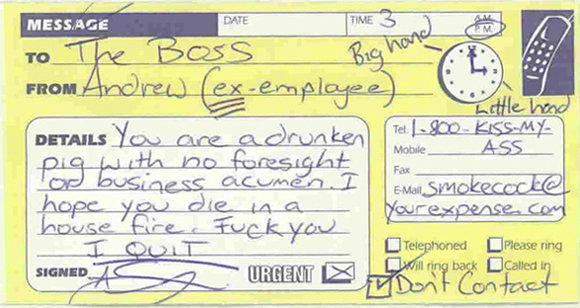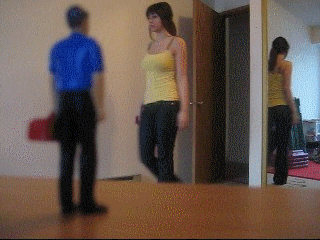Jammie Thomas Fined $1.92 Million for Sharing 24 Songs
- 23 Comments

It only took the jury a few hours to deliberate and weigh all the evidence. Jammie Thomas was originally sued for $222,000, but her new fine is now $1.92 Million. Some are already wondering whether or not such a fine is even constitutional.
The Jammie Thomas trial took a shocking turn for the worse. During the short re-trial, a jury found Jammie Thomas liable for wilful copyright infringement for sharing 24 songs and fined her $1.92 Million. This latest verdict is fresh blow to file-sharers within the United States.
This doesn’t mean the end of the road for the trial. Already, the EFF is suggesting that the damages awarded might be considered unconstitutional:
First, the Supreme Court has made it clear that “grossly excessive” punitive damage awards (e.g., $2 million award against BMW for selling a repainted BMW as “new”) violate the Due Process clause of the U.S. Constitution. In evaluating whether an award “grossly excessive,” courts evaluate three criteria: 1) the degree of reprehensibility of the defendant’s actions, 2) the disparity between the harm to the plaintiff and the punitive award, and 3) the similarity or difference between the punitive award and civil penalties authorized or imposed in comparable situations. Does a $1.92 million award for sharing 24 songs cross the line into “grossly excessive”? And do these Due Process limitations apply differently to statutory damages than to punitive damages? These are questions that the court will have to decide if the issue is raised by Ms. Thomas-Rasset’s attorneys.
Second, recent Supreme Court rulings suggest that a jury may not award statutory damages for the express or implicit purpose of deterring other infringers who are not parties in the case before the court. In other words, the award should be aimed at deterring this defendant, not giving the plaintiff a windfall in order to send a message to others who might be tempted to infringe. It’s hard to know without having been in the courtroom, but if the record industry lawyers urged the jury to “send a message” to the millions of other American file-sharers out there, they may have crossed the constitutional line.
For more on the details of these constitutional doctrines, I recommend a recent article by Prof. Pamela Samuelson & Tara Wheatland, Statutory Damages in Copyright Law: A Remedy in Need of Reform (full disclosure: Prof. Samuelson is a member of EFF’s board of directors). For those who want a shorter summary of the debate in podcast form, I recommend Prof. Douglas Lichtman’s IP Colloquim episode entitled Statutory Damages and the Tenenbaum Litigation. While I disagree with some of Prof. Lichtman’s conclusions, his guests do a wonderful job summarizing the relevant cases and concepts.
I assume these arguments will first be submitted to the trial judge in post-trial motions. After all, this judge has already indicated that he found the previous $220,000 award to be “unprecedented and oppressive.”
As we’ve already noted in a previous article:
Already, Jammie Thomas lost her case back in 2007 where she was fined $222,000 for sharing 24 songs on the FastTrack network. Then, in a surprising turn of events, Judge Davis threw out the case because of an error on his part. The main reason for the case being thrown out was because he instructed the jurors that merely placing copyrighted works in a shared point constitutes copyright infringement. Realizing this error, he threw the case out saying that steps to allow distribution does not, in and of itself, constitute copyright infringement. In short, it was a “manifest error in law”. The record labels were not happy about the turn of events. They consequently appealed the mistrial ruling saying that the judge had correctly instructed the jurors in this case and that the trial was legitimate. Unfortunately for the major record labels, the judge denied that appeal – that paved the way to this trial many had expected to go over better than her original $222,000 fine. Unfortunately, it seems that this case has actually taken a turn for the worse this time around. One hopes that the new appeal will work out better.
Have a tip? Want to contact the author? You can do so by sending a PM via the forums or via e-mail at drew@zeropaid.com.
Tags: file sharing, lawsuit, legal, p2p, piracy, riaa






























































































